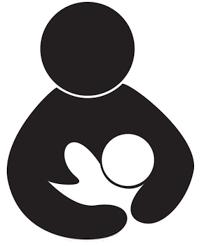WHY MEDICAL TRAINING HAS GOT TO CHANGE I couldn’t take my eyes off the screen. Squeezed next to some fellow medics in a student room, on placement in Bath earlier this term, we were watching the TV series ‘It’s a Sin’. The show follows the lives of a group of gay men in their early 20s who move to London in 1981. As the show unfolds characters get HIV/AIDS, and over time many of them die. We, the viewer, lose the people we have grown to love and are left feeling like a mother who lost her son prematurely. Previously, I had only given the most cursory interest to the AIDS pandemic. I wasn’t born till 1999, a decade after the worst of the drama, and it was not a topic I remember discussing when I was growing up in West London. ‘It’s a Sin’ prompted me to think about the human factors at play in this much earlier pandemic of the 1980s, one that was wrapped up in homophobia. A huge number of men, running into the hundreds of thousands, were rejected by their own families when they had, or died of AIDS. None of this rejection had occurred to me – that parents would burn their children’s possessions if they had died of AIDS to erase all traces of their family connection. Nor had it crossed my mind just how difficult it might have been to be a carrier of HIV. In the show, Richie is the confident, jokey protagonist. He knows he has HIV but still continues to have sex with other men. After Richie’s death, his friend Jill explains that Richie felt ashamed and felt that he deserved to get a virus because he was gay. I could not understand how a victim of a pandemic might feel such self-loathing and as if they deserve to die. The series affected me profoundly, as I know it did for many other medics who watched the series. The word spread fast among us medics: watch this series and be amazed as well as chastened. We were all left with the same question: “Why, given the huge impact of this epidemic, had we had no formal teaching on the AIDS pandemic at medical school?” The TV series prompted discussion with my friends on the existing curriculum that medics are taught. COVID has also prompted general discussion at family dinner tables up and down the country about pandemics. We all felt ill-prepared when questioned by our families on previous pandemics – not just AIDS, but other medical catastrophes throughout history. We were no longer the resident ‘we know-all-about-medicine-and-are -delighted-to-answeryour-questions’ in our families. From feeling ignorant about AIDS, I realised that my ignorance did not stop there. There were other important medical pandemics I knew nothing about: the Spanish flu, the eradication of infectious diseases, or the SARS or Ebola epidemic. I realised that the only history of medicine teaching came in my medical training was when individual lecturers deemed it relevant to their subject matter. I recall one lengthy lecture about the history of vaccinations, where the lecturer explained the story of Edward Jenner 11
Issuu converts static files into: digital portfolios, online yearbooks, online catalogs, digital photo albums and more. Sign up and create your flipbook.











